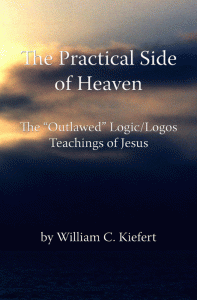
Copyright William C. Kiefert. All Rights Reserved.
A recent visitor to GnosticChristianity.com submitted this question: So where are Jesus’ private teachings? Outside of what was left in the bible, that is. How are you getting your information to be able to make these claims?
In reply, here are the thoughts of John Miller, Ph.D., whose contributions to GnosticChristiany.com are many and great. This information is published here with Dr. Miller’s permission, and all rights are hereby reserved.
I have been asked to respond to your query concerning Jesus’ gnostic teachings. Obviously, if they were secret, they are not written down for public viewing. In the thirteenth chapter of the Gospel of Matthew, we read (Jesus is speaking to his disciples here): Unto you is given to knew the mysteries of the kingdom of heaven, but to them it is not given. Therefore speak I to them in parables, because they seeing, see not; and hearing, they hear not, neither do they understand.” Similar passages are found in the Gospels of Mark and Luke. In fact, in Mark 4:12, it is written that Jesus speak in parables so that people may NOT understand what he is saying: “that seeing they may see, and not perceive; and hearing, they may hear, and not understand.” In other words, the secret truths of the mysteries are concealed from the masses, those who are not prepared to learn the sacred mysteries or truths.<br><br>Scholars acknowledge that there was, among early Christian sects, a gnostic group. In fact, the Gospel of John is gnostic in tone and, to a certain extent, in content. Professor Elaine Pagels has written about the gnostic gospels in a book by that title. She has written a recent book, too, on the subject; but I just moved and cannot lay my hands on the book. But if you read her work, you will get a lot of information about the gnostic tradition.
I worked with Bill Kiefert on some of his books, helping him to write them, refining, elaborating and expanding the ideas. The gnostic tradition believed that KNOWLEDGE was necessary for “salvation,” but exactly what that knowledge was, would be a guess. Bill Kiefert, however, was convinced by his study that the knowledge had to do with logos, reason, and a particular form of reasoning in terms of (a) both/and rather than either/or, (b) treating people as though there was no fundamentally single human nature (he believed that there are many human natures), hence (c) there is no one right way to be, to believe, or to live. If people adhered to these three tenets of Bill’s “gnostic” philosophy, they could live more in peace and harmony. Bill believed that a new kind of logic was what Jesus taught his disciples in secret.
Cordially, Dr. John Miller for GnosticChristianity.com
